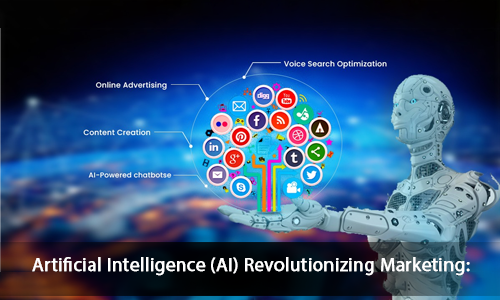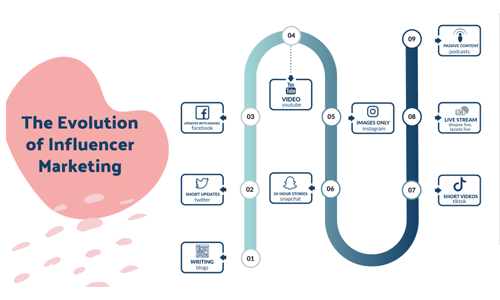Future of Digital Marketing: Unveiling a World

In the digital age, where technology has transformed the way we communicate, shop, and consume information, digital marketing has become an indispensable tool for businesses worldwide. From social media campaigns to personalized email marketing, organizations have harnessed the power of the internet to reach their target audience more effectively. However, the future of digital marketing promises even greater opportunities and challenges. In this blog post, we will explore the potential advancements and trends that will shape the future of digital marketing.
I. Artificial Intelligence (AI) Revolutionizing Marketing:

Artificial Intelligence has already made significant strides in various industries, and digital marketing is no exception. AI-powered chatbots, voice assistants, and recommendation algorithms have transformed the way businesses interact with customers. In the future, AI will play an even more substantial role in personalizing marketing campaigns, analyzing vast amounts of data, and delivering hyper-targeted content. Marketers will be able to leverage AI to create more accurate customer personas, predict customer behavior, and provide highly tailored experiences.
II. Rise of Voice Search and Voice-Activated Devices:

With the increasing popularity of voice-activated devices like smart speakers and virtual assistants, voice search is on the rise. As voice recognition technology improves, optimizing content for voice search will become crucial for digital marketers. Voice search queries are often longer and more conversational, requiring marketers to adapt their SEO strategies accordingly. Voice-activated devices will also open up new avenues for advertising and brand interactions, allowing marketers to engage with consumers through voice-enabled apps and smart home devices.
III. Enhanced Data Privacy and Personalization:

Data privacy has become a paramount concern for consumers, and regulations like the General Data Protection Regulation (GDPR) and the California Consumer Privacy Act (CCPA) have tightened the rules around data collection and usage. In the future, marketers will need to strike a delicate balance between personalization and privacy. Transparency in data collection practices, explicit consent, and providing value in exchange for data will become key strategies. Marketers will harness technologies like blockchain to ensure secure and transparent handling of user data, building trust and fostering long-term customer relationships.
IV. Immersive Technologies: Augmented Reality (AR) and Virtual Reality (VR):

Immersive technologies such as AR and VR are transforming the way consumers engage with brands. In the future, these technologies will play an even more prominent role in digital marketing. AR will enable customers to visualize products in real-time, enhancing the shopping experience and reducing purchase hesitation. VR will transport users into virtual environments, allowing brands to create captivating narratives and immersive storytelling. Marketers will leverage these technologies to create interactive advertisements, virtual showrooms, and experiential campaigns, providing unique and memorable experiences for their audience.
V. Influencer Marketing Evolution:

Influencer marketing has become a staple in the digital marketing landscape. However, as the market becomes saturated, brands will need to adapt their approach to stand out from the crowd. Authenticity, transparency, and genuine connections will be crucial for successful influencer campaigns. Micro-influencers with niche audiences will gain traction, as they often have higher engagement rates and offer a more targeted reach. Moreover, emerging technologies like virtual influencers and AI-generated content will blur the lines between real and virtual personalities, creating new possibilities for brands to collaborate and connect with their target market.
VI. Social Media Reinvention:

Social media platforms are continuously evolving, and marketers must adapt to these changes. Short-form video content, live streaming, and ephemeral content (like Stories) have gained immense popularity, and they will continue to dominate social media in the future.
Conclusion:
The future of digital marketing holds immense potential for businesses willing to adapt and embrace emerging technologies and trends. Artificial Intelligence will revolutionize marketing by enabling hyper-personalization and data-driven decision-making. Voice search and voice-activated devices will reshape the way consumers search for information, requiring marketers to optimize their strategies accordingly. Balancing data privacy and personalization will be paramount, as consumers demand transparency and control over their data.
Immersive technologies like AR and VR will provide exciting opportunities for brands to create immersive experiences and engage customers in new and innovative ways. Influencer marketing will continue to evolve, emphasizing authenticity and meaningful connections with micro-influencers and virtual personalities. Social media will undergo further reinvention, with short-form video content and social commerce dominating the landscape.
